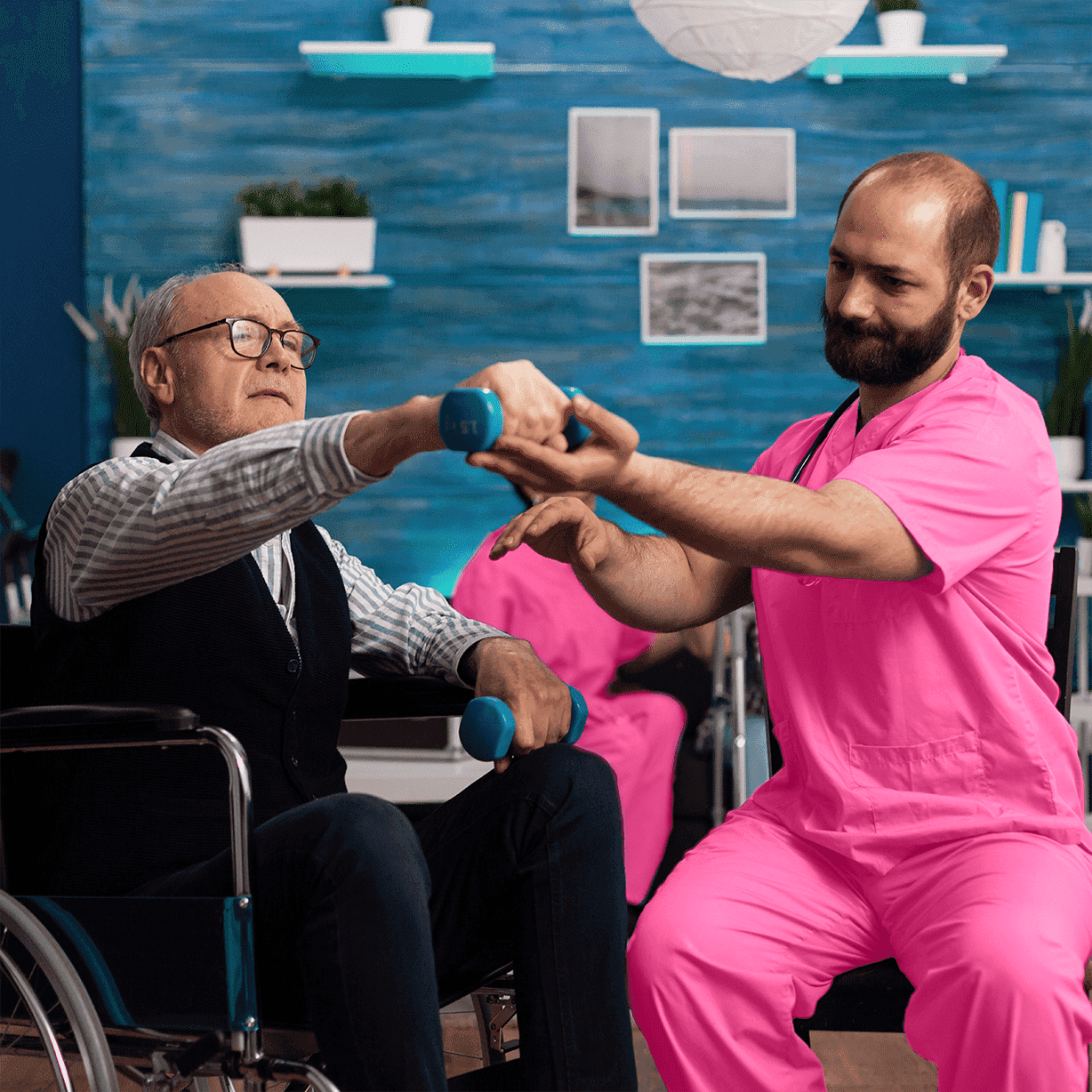
Making the Most of Hourly Home Care
Making the Most of Hourly Home Care
It’s not just about filling in gaps in the day; it’s about enhancing the quality of daily life with professional care.
Making the Most of Hourly Home Care Services
Making the Most of Hourly Home Care Services
As we all navigate the twists and turns of life, especially in our later years or as caregivers, the need for a care solution that adapts to our changing circumstances becomes incredibly important. That's where the concept of hourly home care steps in, offering a helping hand just when it's needed, without the commitment of round-the-clock care. In this piece, we're going to explore the world of hourly home care, a service that's as flexible as it is valuable for those who value their independence yet require some assistance.
Imagine having the freedom to choose care for just a few hours a day or week, tailored precisely to your needs or those of your loved ones. This is what hourly home care is all about – it's there when you need it, fitting seamlessly into your existing routine. It's perfect for those times when you need a little help with daily tasks, or for when a primary caregiver needs a well-deserved break.
Whether you're just starting to consider some extra help at home, or you've been caring for a loved one and need additional support, getting the most out of hourly care can make a significant difference. It’s not just about filling in gaps in the day; it’s about enhancing the quality of daily life with professional care, companionship, and a helping hand.
A Tailored Approach to Meeting Individual Needs
A Tailored Approach to Meeting Individual Needs
When we think about home care, often the image that comes to mind is either full-time live-in assistance or weekly visits from healthcare professionals. However, hourly home care services occupy a unique and essential space in the spectrum of care, offering a level of flexibility that can be a perfect fit for many families and individuals.
What Hourly Care Entails: Essentially, hourly home care involves professional caregivers providing assistance on an as-needed basis, often for a minimum set number of hours per week. This can range from help with daily tasks like cooking and cleaning, to more personal care such as bathing and medication management. The beauty of this service is in its customization – care can be scheduled just for the times when it’s most needed.
Ideal for Various Situations: Hourly care is particularly advantageous for those who are largely independent but may need help in specific areas. For instance, an older adult who is active but has mobility issues may only need assistance with grocery shopping or attending medical appointments. Similarly, it can be a great support for people who are recovering from surgery or illness and need temporary assistance.
Balancing Independence and Assistance: One of the most significant benefits of hourly care is the balance it strikes between independence and support. It allows individuals to maintain their daily routines and lifestyle while ensuring help is available when necessary. This balance is crucial for maintaining a sense of normalcy and dignity, particularly for seniors who cherish their independence.

Cost-Effective and Flexible: Financially, hourly care can be more cost-effective than full-time care solutions, as you only pay for the care you need. This aspect makes it an attractive option for those with budget considerations. The flexibility to increase or decrease hours as required also means that care can evolve along with the changing needs of the individual.
Understanding hourly home care services is the first step in recognizing its potential as a valuable resource for providing tailored, flexible, and respectful care. It’s a service that acknowledges the diverse needs of individuals and offers a solution that respects their independence while providing the necessary support.
Enhancing Care with Smart Planning and Communication
Enhancing Care with Smart Planning and Communication
Optimizing the advantages of hourly home care hinges on thoughtful planning and open communication. It's about making each hour count. Here are some strategies to ensure that you or your loved ones get the most out of these flexible care services.
1. Clear Communication is Key: Before the care sessions begin, it’s crucial to have a clear discussion with the caregiver about specific needs, preferences, and expectations. This might include a detailed schedule, particular tasks that need attention, or unique care requirements. Clear communication helps the caregiver provide focused and efficient service.
2. Prioritizing Tasks and Needs: With limited hours, prioritizing tasks is essential. Assess the most critical needs – whether it's assistance with personal hygiene, meal preparation, or attending appointments. Conveying these priorities to the caregiver ensures that the most important tasks are addressed first.
3. Preparing for the Caregiver's Arrival: To make the most of the caregiver’s time, it can be helpful to have a list of tasks or a plan ready for each visit. This might include having medications, supplies, or paperwork organized and accessible. Preparation minimizes downtime and maximizes productive care
4. Building a Relationship: While the care is hourly, building a rapport with the caregiver can greatly enhance the experience. When there’s a level of comfort and understanding, it’s easier for the caregiver to tailor their approach to the individual’s personality and needs.
5. Regular Reviews and Adjustments: As needs change, so should the care plan. Regularly reviewing the care provided and making adjustments as necessary ensures that the service remains relevant and effective. This might mean altering the hours of care or the types of tasks as the individual’s situation evolves.
By embracing these strategies, hourly home care can become not just a service, but a tailored support system that adapts to the evolving needs of seniors, ensuring their well-being and enhancing their quality of life.

Seamlessly Blending Support into Everyday Routines
Seamlessly Blending Support into Everyday Routines
Integrating hourly home care into the daily life of a senior or a person in need of assistance should feel like a natural extension of their regular routine. It’s about ensuring that care enhances their life without being disruptive. Here’s how to smoothly blend hourly care into the everyday rhythm of life.
1. Aligning with Daily Routines: The key to successful integration is aligning care with the existing daily routines. If mornings are slow and relaxed, scheduling care tasks during this time might not be ideal. Instead, aligning more active tasks to the senior's most energetic times of day can make the care more effective and less intrusive.
2. Involving the Care Recipient in Planning: Whenever possible, involve the care recipient in planning the caregiver’s schedule. This inclusion can increase their comfort level and give them a sense of control over their care. Decisions like when to have meals, go for walks, or schedule appointments can make a big difference in how they perceive and interact with their care.
3. Fostering Independence: Hourly care should aim to support and foster independence, not replace the care recipient’s abilities. Caregivers can encourage seniors to do tasks they are comfortable with and step in only when necessary. This approach maintains a sense of normalcy and self-reliance.
4. Gradual Introduction: If hourly care is new, introducing the caregiver and their services gradually can help ease any apprehensions. Start with shorter sessions and as the senior becomes more comfortable, gradually increase the time as needed. This gradual introduction helps build trust and familiarity.
5. Consistent Caregivers When Possible: Consistency in caregivers can greatly aid in integrating care into daily life. When seniors see familiar faces, it builds a sense of trust and comfort, making it easier for them to welcome caregivers into their homes and lives.
Integrating hourly care into daily life is about striking a balance – a balance that respects the routines and preferences of the care recipient while providing the necessary support to enhance their quality of life.
Fostering Connection and Trust in Care
Fostering Connection and Trust in Care
Establishing a strong, trusting relationship with an hourly caregiver is not just beneficial – it's essential for effective care. Here’s how to nurture this important relationship, ensuring it is as rewarding for the caregiver as it is beneficial for the recipient of care.
1. Open and Honest Communication: From the outset, establish a culture of open and honest communication. Share your expectations, preferences, and any concerns you might have. Encourage the caregiver to do the same. This two-way dialogue creates a foundation of mutual understanding and respect.
2. Show Appreciation and Respect: Caregiving, though a professional role, is deeply personal. Showing appreciation for the caregiver’s work and respecting their expertise can strengthen the bond. Small gestures of gratitude or acknowledgment of their efforts can go a long way in building a positive relationship.
3. Understand Their Role: Recognize that caregivers are professionals with their own methods and boundaries. Understanding their role and respecting their professional boundaries help in creating a harmonious working relationship.

4. Regular Check-ins and Feedback: Schedule regular check-ins to discuss how things are going. Provide constructive feedback and be open to receiving suggestions from the caregiver. These check-ins can help adjust care plans as needed and ensure that both parties are satisfied with the arrangement.
5. Create a Welcoming Environment: A welcoming environment can make a significant difference. If the caregiver feels comfortable and valued in your home, it can enhance the quality of care they provide. Simple acts like offering a cup of tea or having a friendly chat can create a more pleasant and cooperative atmosphere.
Building a strong relationship with hourly caregivers is about creating a partnership based on trust, respect, and open communication. It’s through this partnership that the highest quality of care can be achieved, benefiting everyone involved.
Personalized Care with a Heart
Personalized Care with a Heart
As we conclude our exploration of maximizing the benefits of hourly home care services, it's essential to recognize how Life Home Care elevates this model of care with their personalized and human-centered approach.
Tailoring Care to Individual Needs: Life Home Care stands out in its commitment to understanding the unique needs and preferences of each individual. We recognize that no two care situations are the same, and our approach to hourly care is as flexible and varied as the people we serve. By carefully matching caregivers with clients based on both care needs and personality, we create a more harmonious and effective care environment.
Emphasizing Communication and Relationship: At the core of Life Home Care’s philosophy is the importance of communication and relationship-building. We encourage regular, open dialogue between caregivers, clients, and families, ensuring that care plans evolve in response to changing needs and preferences. This focus on communication fosters a deeper sense of trust and cooperation, enhancing the overall care experience.
Supporting Caregivers for Quality Service: Life Home Care also understands the value of supporting their caregivers. By providing ongoing training and resources, we ensure their staff are well-equipped to handle diverse caregiving situations. This investment in their caregivers translates into higher quality care for clients and a stronger, more competent care team.
A Partner in Your Care Journey: Choosing Life Home Care for hourly services means partnering with a team that genuinely cares about making a positive impact in the lives of those we serve. We’re not just providing a service; we’re enriching lives through dedicated, compassionate care.
As we look at the role of hourly care in supporting independence and quality of life, Life Home Care’s approach stands as a testament to the power of personalized, compassionate care. Whether you’re considering hourly care for yourself or a loved one, we offer the expertise, support, and human touch that can make all the difference.